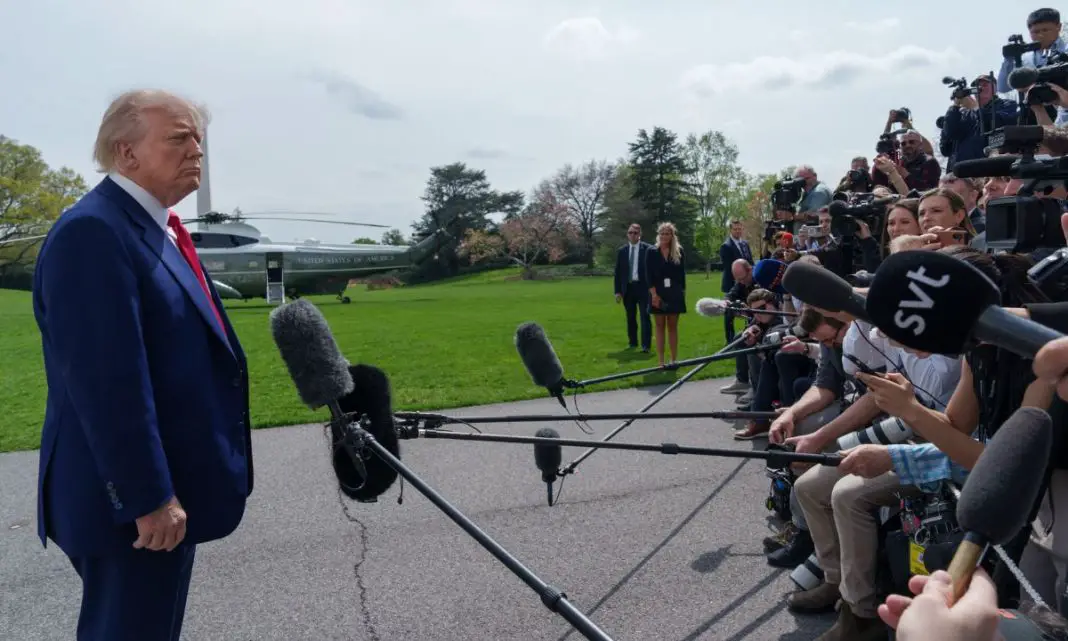Trump Steps Up to Safeguard American Steel
President Donald Trump kicked off the week with a decisive move, tasking a key U.S. national security panel with a renewed dive into Nippon Steel’s bid to acquire U.S. Steel.
The directive, issued Monday, signals his commitment to ensuring American industries stay strong and secure.
“I direct the Committee on Foreign Investment in the United States…to conduct a review of the acquisition of U.S. Steel by (Nippon Steel) to assist me in determining whether further action in this matter may be appropriate,” the memo states, leaving room for optimism that Trump might clear the path for this high-stakes deal.
This isn’t just bureaucratic busywork—Trump’s focus here highlights his overall push to protect U.S. manufacturing muscle, especially in iconic sectors like steel.
After former President Joe Biden slammed the brakes on the merger in January, citing national security concerns, Trump’s fresh approach hints at a willingness to rethink that call.
The move sent U.S. Steel’s stock soaring nearly 14%, a clear sign that Wall Street sees a potential win for American industry under Trump’s watch.
Companies Rally Behind Trump’s Review
Nippon Steel didn’t hide its excitement over the development. “We have been confident from the outset that an objective, fact-based review of our proposed partnership with U.S. Steel will show that it strengthens American economic and national security,” the company declared, welcoming Trump’s directive as a chance to prove its case.
They’re betting on a fair shake—one that could bolster U.S. steel production while aligning with Trump’s vision for economic resilience.
U.S. Steel echoed that enthusiasm, eager to collaborate with the administration. “We look forward to continuing to work closely with President Trump and his administration to finalize this significant and important investment,” a company spokesperson said.
For them, Trump’s involvement isn’t just about a merger—it’s about securing a lifeline for an American industrial giant, headquartered in the steel heartland of Pennsylvania, under a leader who’s made protecting such legacies a cornerstone of his agenda.
Reversing Biden’s Block and Boosting Industry
The backdrop to Trump’s directive is a messy saga that’s been brewing since Biden’s January decision to nix the deal. That block sparked a lawsuit from U.S. Steel and Nippon Steel against the Committee on Foreign Investment in the United States (CFIUS), the panel charged with vetting foreign investments.
The companies argued Biden tainted the process, claiming he skewed CFIUS’s review to cozy up to the United Steelworkers union in swing-state Pennsylvania for political gain. “They claimed that the then-President did so to win the favor of the United Steelworkers (USW) union…to improve his chances of re-election,” the suit alleged, painting Biden’s move as more about votes than national interest.
Trump’s administration isn’t letting that stand unchallenged. Last month, it stepped in with a motion to push back deadlines in the lawsuit, buying time to hammer out merger talks with the companies. Now, with this latest memo, Trump’s signaling he’s ready to dig into the facts himself—potentially undoing Biden’s roadblock and paving the way for a deal that could pump new life into U.S. Steel.
It’s a bold play, one that ties into his relentless drive to shield American industries from foreign overreach while keeping jobs and production humming at home.
Do you agree with Trump’s efforts to help protect American steel? As always, let us know your thoughts in the comments below.


Wow the pre has his fingers in many pies all to American benefits. We are truly blessed
I am proud to say that I have consistently voted for Donald J. Trump, MY PRESIDENT OF THE UNITED STATES OF GOD BLESSED AMERICA.
Signed
Chauncey M. ‘BUDDY’ Freeman
Senior Chief U.S.NAVY,RETIRED
Who is Nippon, I have never heard of them. Are they U.S. owned or owned by another country. If Nippon is foreign, I say No. The loss of our steel all started with foreign buying out contents of a business and taking their new inventory over to foreign counties mainly China who build new buildings and put U.S. inventory, meaning machines making the product. If Nippon is Japan, again they have a habit of building or buying and down the road their product is being built in Japan and the buildings here end up being inventory and way stations to get into the and push their product throughout the U.S. The jobs left inventory and transporting, lower paying and lower career building jobs.